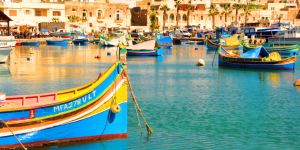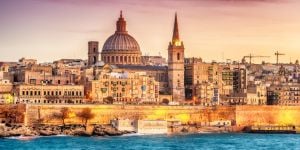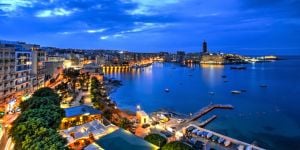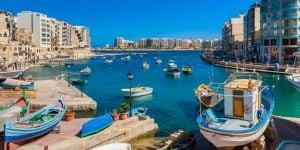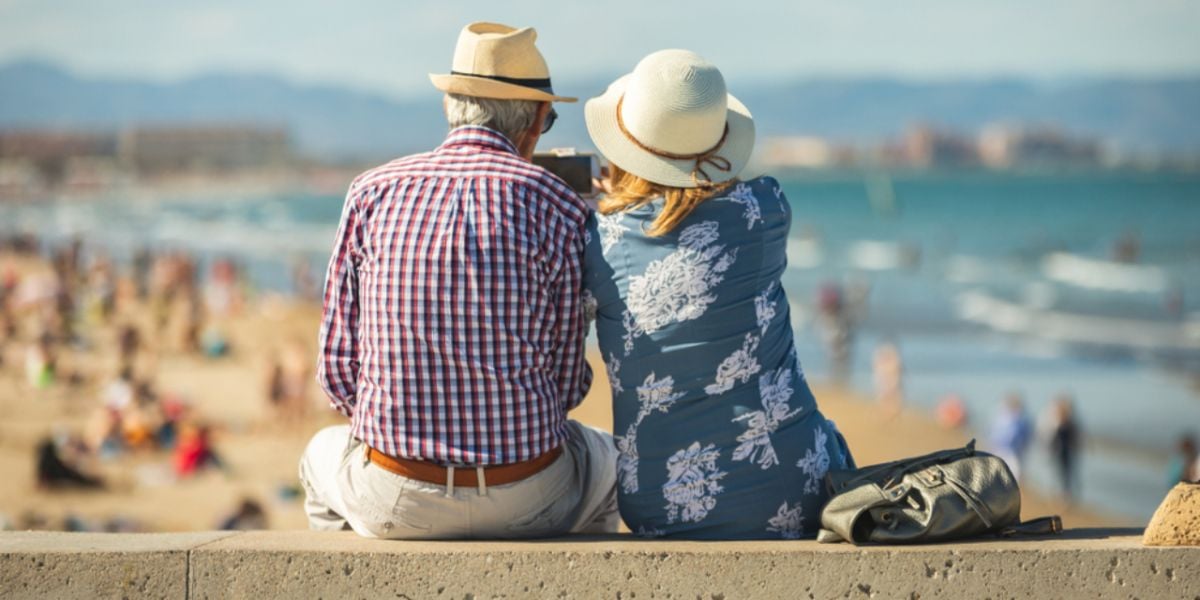
As retirement approaches, many people choose to spend their golden years in a country with a more pleasant climate, making the most of their free time. Malta has become a highly coveted destination for retirees and future retirees, thanks to its climate, cost of living, lifestyle, and the ease of integrating into the local culture. This article explores the programs available for foreign retirees and highlights the many advantages of settling in Malta.
What are your options for retiring in Malta?
If you're looking for a stable and peaceful country within the European Union, Malta is an English-speaking nation located in the Mediterranean, offering numerous benefits for enjoying a fulfilling retirement.
Take the time to research the entry conditions in Malta in advance. There are several ways to relocate to Malta for retirement:
- The Malta Retirement Programme (MRP);
- The Global Residence Programme (GRP);
- Residence permits for EU and third-country nationals;
- The acquisition of Maltese nationality through investment.
The healthcare system and the cost of living in Malta are advantageous, even for foreign retirees settling there. Not to mention the Mediterranean lifestyle, known for being relaxed and very pleasant.
Malta Retirement Programme (MRP)
The Malta Retirement Programme (MRP) was established by the Maltese authorities to attract EU, third-country, EEA, and Swiss nationals, allowing them to live in Malta using their foreign-sourced income. In exchange for an enviable lifestyle, they agree not to work in the archipelago.
Application for the Malta Retirement Programme (MRP) is straightforward and allows successful candidates to benefit from:
- A flat tax rate of 15% only on foreign-sourced income transferred to Malta;
- An exemption from tax on worldwide income.
However, income derived from Malta, which must not exceed 25% of total annual income, is subject to a 35% tax rate. The minimum tax payable per year is €7,500, plus €500 for each dependent.
To be eligible for the Malta Retirement Programme, a candidate must:
- Be an EU, third-country, EEA, or Swiss national;
- Live in Malta for at least 90 days on average over a 5-year period;
- Not reside in another country for more than 183 days per year;
- Present an up-to-date good conduct certificate prooving they are a "fit and proper person";
- Hold valid health insurance in Malta;
- Be able to communicate in English or Maltese;
- Not benefit from any other program.
They must also be either the owner or the tenant of a property in Malta, meeting the following minimum price requirements:
- Purchase of a property in Malta (except in the south of the island): €275,000;
- Purchase of a property on the island of Gozo (or in the south of Malta):
- After January 1, 2011, and until June 30, 2013: €250,000;
- From July 1, 2013: €220,000.
- Renting a property in Malta (except in the south of the island): €9,600 per year;
- Renting a property in Gozo (or in the south of Malta): €8,750 per year.
Retirement pension
In addition to the conditions listed above, the retired candidate wishing to relocate to Malta must receive a pension with supporting evidence. By pensions, the authorities mean:
- Periodic payments made to a former employee for previous employment;
- Regular income from an occupational retirement scheme;
- Personal retirement plans abroad;
- Insurance policies.
Lump-sum payments of any kind are excluded. This pension must represent at least 75% of their taxable income for a given fiscal year and must be sufficient to allow the retired expatriate to support themselves without resorting to the Maltese social aid system.
How to apply for the Malta Retirement Programme
The application can only be submitted to the Commissioner for Revenue through the services of an Authorised Registered Mandatory (ARM), whose offices are listed here. The applicant must authorize these services by completing and signing the original of part 1 of the application form.
To participate in the Malta Retirement Programme, the application, along with the required supporting documents, must be sent to the International & Corporate Tax Unit at the following address: International & Corporate Tax Unit AM Business Centre, Labour Road Zejtun, ZTN 2401. The mention "Application: Malta Retirement Programme" must be written on the envelope.
Non-refundable administrative fees of €2,500 apply.
Important:
The Maltese retirement program residence permit does not allow you to work or start a business in Malta. However, it allows participation in a public institution, trust, or foundation dedicated to philanthropic, educational, or research and development activities.
Retiring in Malta through the Global Residence Programme (GRP)
The GRP is a profitable option for some retirees seeking to benefit from a special tax status while living in Malta.
Indeed, the GRP is only available to nationals of non-EU/EEA/Swiss countries who do not have long-term resident status (see further below in the article), but who wish to be able to travel within the EU and settle in Malta.
The applicant must thus meet strict financial conditions:
- Invest in a property worth at least €275,000 (€220,000 in certain regions);
Or
- Establish a rental contract of at least €9,600 (€8,750 in certain regions).
Residence permits in Malta for retirees from the EU, EEA, and Switzerland
If they do not meet the conditions required to benefit from the Malta Retirement Program or the Global Residence Program, retired nationals from the EU, EEA, and Switzerland receiving a pension can still apply for a Maltese residence permit.
While there are several types of residence permits in Malta, they are concerned with the so-called economic self-sufficiency permit. This means they must be able to support themselves and their family members who accompany them or wish to join them in Malta. In summary, they must have sufficient resources to avoid becoming a burden on the State.
To be eligible for this residence permit, the applicant must have a residence in Malta and have health insurance coverage. As for the minimum required resources, they include:
- A bank balance of €14,000 for individuals - or €23,300 for married couples;
Or
- A demonstrated regular income of €92.72 per week - €105.93 for married couples and an additional €8.15 for each dependent child.
The application form is available on the Identità website.
The tax payable for residence is calculated by taking 15% of the income. In 2018, the Maltese government instituted a minimum obligation of €5,000 per year.
Good to know:
EU nationals benefit from the right to free movement but must apply for the residence permit (eResidence card) to stay more than three months in Malta.
Temporary residence permit in Malta for non-EU retirees
Retirees from third-countries can also benefit from a residence permit in Malta, which is a temporary residence permit.
Since Malta is part of the Schengen area, this permit is very advantageous for third-country nationals. Otaining a residence permit in Malta means they can travel throughout the Schengen area without needing a visa for stays of up to three months.
The self-sufficient residence permit is open to nationals of non-EU/EEA/Swiss countries planning to retire in Malta. However, the application form, also available on the Identità website, is different from the one intended for EU/EEA/Swiss nationals.
The conditions for obtaining this residence permit are similar to those applicable to EU/EEA/Swiss nationals. The applicant must have an address in Malta and have health insurance coverage, and the capital threshold is raised to €50,000. They must also renew their residence permit annually within 90 days following the expiration date. Their current permit must still be valid.
Approval is left to the discretion of government officials who have shown a tendency to prefer wealthy individuals to apply under the investment visa, requiring a significant investment.
Holders of this residence permit can benefit from the 15% fund transfer tax system. A minimum obligation of €5,000 per year also applies.
Permanent residence for EU and EEA retirees in Malta
Thanks to the right to free movement, EU/EEA nationals and their family members can apply for permanent residence in another EU country after having legally resided in that country for an uninterrupted period of 5 years.
Long-term residence for third-country retirees in Malta
After five years of legal and continuous residence in Malta, third-country nationals can obtain a long-term residence permit, as long as they can proove that they are economically self-sufficient and that their income is at least equal to the Maltese minimum wage, plus 20% for each dependent family member.
Acquisition of citizenship for exceptional services by direct investment
The Acquisition of Citizenship for Exceptional Services by Direct Investment targets retirees ready to invest a significant amount in Malta in exchange for Maltese citizenship.
Applicants must:
- Make a direct investment of €600,000 or €750,000;
- Purchase a property in Malta valued at a minimum of €700,000 or rent a property for a minimum annual rent of €16,000;
- Donate a minimum of €10,000 to an NGO.
Healthcare in Malta for retirees
Regarding healthcare in Malta, the archipelago is recognized by the WHO (World Health Organization) for the quality of its care. In fact, its healthcare system ranks among the best in the world.
Healthcare is free in public hospitals and dispensaries, but paid in private clinics. However, foreigners are advised to visit clinics, as it is often difficult to get an appointment at the hospital. Hence, the importance of having good health insurance to cover such expenses. It is recommended to subscribe to health insurance before moving to Malta and before the age of 55, as health insurance companies are often reluctant for older individuals.
Cost of living for retirees in Malta
The cost of living in Malta is generally lower (around 20%) than in major European cities, except perhaps in popular cities like St Julian's, Sliema, or Valletta, where it can be similar. This does not prevent finding modern apartments in these cities with a small garden and at an affordable price, provided you move away from the city center.
Regarding shopping, prices are quite similar to those in Europe: remember that Malta is an island, and many products are imported.
As for healthcare, count around €15 for a consultation with a general practitioner versus about €40 with a dentist.
The rent for an apartment or house ranges from €900 to €1,500 in the city versus €1,000 outside. Prices vary depending on the type of accommodation, the number of rooms, the size of the garden, etc., not to mention that coveted cities like St Julian's or Sliema are more expensive.
For buying a property in Malta, count around €350,000 for a small character house with one bedroom in a charming village versus €300,000 for an apartment with 2 or more bedrooms in the city. With a larger budget, you can buy a villa.
Good to know:
Once settled in Malta for your retirement, you will enjoy undeniable advantages: no wealth tax, no housing tax, and no property tax! Moreover, there is no foreign capital gains tax in Malta, and the archipelago has signed double taxation agreements with many countries, which can be beneficial.
Living as a retiree in Malta
Everyday life in Malta is generally pleasant and slow-paced for retirees.
While Maltese is the official language, English is the second national language, and if you don't speak it, it will be an excellent opportunity to learn a new language! The Maltese, very friendly people, will be happy to help you. Although it is taught in school, French is not spoken in Malta. Still, many people speak Italian.
Many retirees choose Malta for its pleasant and temperate climate, with temperatures ranging from 15°C in winter to 30°C in summer. If you enjoy swimming, you'll be delighted, as the water temperature is almost always 20°C and rises to 27°C or more during hot weather!
The Maltese cuisine features many Mediterranean influences (Arab, Italian, and Tunisian). Its local island and fresh products (seasonal fruits and vegetables and fish) are widely used. You will have no trouble sourcing from local merchants or supermarkets, like Welbee's supermarket in Sliema.
Useful links:
We do our best to provide accurate and up to date information. However, if you have noticed any inaccuracies in this article, please let us know in the comments section below.
